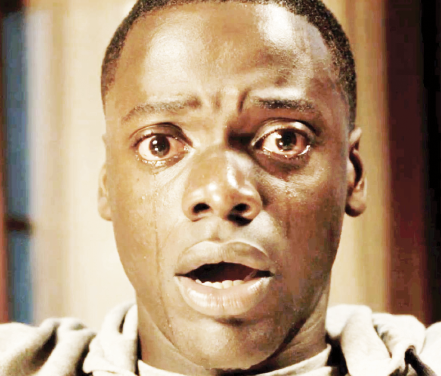
The horror of “Get Out” is a cultural feeling all too familiar to African-Americans and their experience in the United States of America.
The premise of the movie is a narrative that is still looked at with anxiety and guarded acceptance in American culture: interracial dating, meeting the partner’s parents and the paranoia of navigating white social spaces while black.
“Get Out” is the first major Hollywood production of its kind according to the New Yorker, and the film’s director, Jordan Peele, drew on his personal experiences and from several films in the horror genre, including “Night of the Living Dead,” “Rosemary’s Baby,” “Candyman” and “Misery.” Another notable influence mentioned by Peele is the 1967 film “Guess Who’s Coming to Dinner.”
“Get Out” has a very grim humor that is apparent from the beginning when Rose Armitage, played by Allison Williams, tries to assuage the fear and anxiety of her boyfriend Chris Washington, played by Daniel Kaluuya.
Chris asked if Rose’s parents know he’s black, not only looking for affirmation that there’s healthy communication between himself and Rose, but that he doesn’t walk into a potentially awkward situation.
“My dad would have voted for Obama a third time if he could have,” stated Rose as some kind of coded statement that her dad isn’t racist.
“They’re not racist,” she states plainly after a second of looking into Chris’ eyes and seeing that he’s not totally convinced.
The dynamic between Rose and Chris that plays out throughout the film appears to be one of understanding as they navigate through her family’s and their friends’ lowkey racist comments, from physically sizing Chris up, commenting on his genetics and even one guest commenting on how black is the new cool.
Rose shows a deeper understanding of how African-Americans are treated in society during a scene where she sticks up for Chris after a cop asks him to show his ID, saying that it’s “bullshit” and telling Chris he doesn’t have to, even though Chris is complying for his own safety. She eventually gets the cop to back off by using her privilege to stick up for Chris, to which he says afterwards: “that was sexy.”
The racial undertones are apparent even in how a story of Rose’s grandfather is related back to Chris by Dean Armitage, Rose’s father, played by Bradley Whitford. His story recounts the 1936 Berlin Olympics win of Jesse Owens, which proved the myth of Aryan superiority false, but takes an unexpected turn when Dean adds in the loss and disappointment of his own father in the Olympic events to Owens.
The movie reaches a turning point when at the party hosted by Rose’s parents, Chris approaches another black man, whom he regards as a friendly face in an otherwise tense environment, only be to be shocked and confused by the odd behavior of the man who introduces himself as Andrew, played by Lakeith Stanfield. Their awkward greeting is further compounded by Andrew’s reaction to an attempted fist bump from Chris when he grabs Chris’ hand rather than bumping back.
Later in the scene, Chris takes a photo of Andrew and accidentally leaves the flash on his phone’s camera on. Andrew then grabs Chris by the shirt while screaming at him to get out while he can. By this time, it’s already too late for Chris after he has his suspicions confirmed about what really happened to Andrew.
The story after Chris’ interactions with Dre/Andrew takes its darkest twist, touching on the issues of slavery—particularly sex slavery—and racism by white liberals in the twenty-first century and echoing the horrific history African-Americans have experienced in the USA.
